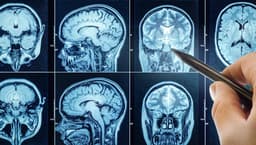Home / Health / Parkinson's Brain Vessels Reveal New Disease Insights
Parkinson's Brain Vessels Reveal New Disease Insights
25 Nov
Summary
- Parkinson's causes significant, progressive changes in brain blood vessels.
- Blood vessel changes, not just protein deposits, drive disease progression.
- Targeting vascular changes may offer new treatment avenues for Parkinson's.
Researchers in Australia have discovered that Parkinson's disease triggers substantial and ongoing alterations within the brain's blood vessels, shifting the established understanding of the condition. The study highlights that while alpha-synuclein protein deposits are a hallmark, region-specific changes in cerebral blood vessels are fundamental to the disease's advancement.
This groundbreaking work observed an increase in "string vessels," which are essentially non-functional remnants of capillaries, alongside modifications in blood flow and the integrity of the blood-brain barrier. These vascular impacts are now seen as central to Parkinson's progression, moving beyond a sole focus on neuronal loss and protein accumulation.
The implications of these findings are significant, potentially paving the way for novel treatment strategies. By addressing these progressive vascular changes, scientists hope to slow the disease's course and improve patient outcomes. Further investigations are underway to determine if similar vascular pathologies are present in Alzheimer's disease and dementia with Lewy bodies.




